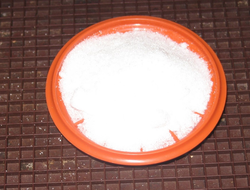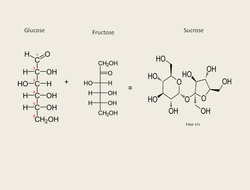Sugar and health
Published: September 09, 2022
Sugar! Is there a place for it in your health orientated eating plan?
Sugar is a component of many foods and beverages.
Overconsumption of sugar, particularly refined sugar added to foods and beverages, has been a health concern for decades.
Years of research point to an association between overconsumption of sugar and several chronic health conditions:
Excessive consumption of sugar can lead to weight gain which is associated with increased risk of these health conditions.
However, weight gain is not solely responsible for this increased risk as other metabolic factors are thought to be affected by excessive sugar consumption.
Health authorities recommend dietary intake limits for added sugar (any sugar that is added to food and beverages) and many low carbohydrate/low calorie diets limit all sources of sugar.
Some popular diets promote fat over sugar which may limit consumption of fresh fruits, vegetables, and whole grains.
Despite this war against sugar we are swamped with media advertisements for sugary food and beverage products.
Needless to say chocolate, candies, cookies, cakes, donut, desserts, and sugar sweetened beverages remain normal everyday foods for many people.
Refined sugars provide you with energy, but have no other nutritional value.
The term “empty calorie” is often given to foods and beverages which only supply you with energy.
Refined sugars are devoid of vitamins, minerals and fibre and often the foods they are added to do not make up for these deficiencies.
Natural sugars are usually associated with foods that provide you with vitamins, minerals, phytochemicals, fibre, protein and fat: all necessary nutrients for health.
A diet containing significant amounts of foods containing refined sugar while providing energy (calories) lacks the vitamins, minerals, and fibre that your body requires.
While small amounts of added sugar can be accommodated in a healthy diet, when consumed in large quantities sugar may contribute to nutrient deficiencies, disease and tooth decay.
Diets containing significant amounts of added sugar are thus a significant cause for concern.
However, identifying foods that contain "healthful" sugars is not an easy task and requires more than a glance at the nutrition fact label provided on many, but not all sugar containing foods.
What is sugar?
The word "sugar" is commonly used to describe refined table sugar (refined sucrose).
However, the word "sugar" is also used to describe naturally occurring carbohydrates, such as glucose, fructose and sucrose.
This varied use of the word "sugar" may be confusing...link to the full article to learn more.
References
1.
Whitney, E. & Rady Rolfes, S. (2005). Understanding Nutrition. Belmont, CA: Thomson Wadsworth
2.
Brand Miller, J., Foster-Powell, K., Colagiuri, S. & Leeds, A. (1998). The GI Factor. Rydalmere, NSW: Hodder Headline Australia Pty.


